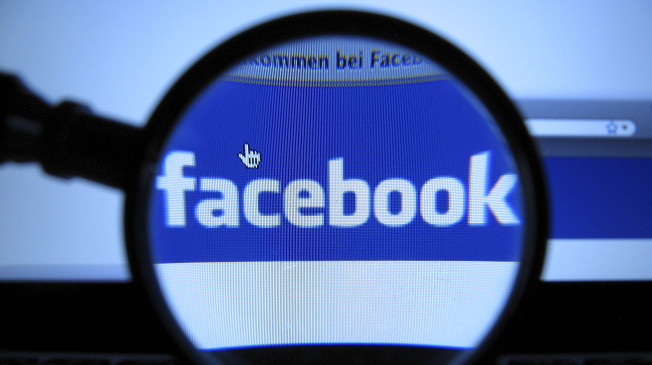After months of denial, Facebook told Congress and the public on Wednesday that a Russian “troll farm” had bought $100,000 worth of political ads on its site from 2015- 2016. That development was catnip for investigators looking into whether U.S. persons helped Russians target voters through social media.
Facebook reportedly handed over copies of the ads themselves to special counsel Robert Mueller, who is looking into whether the Trump campaign’s data operation, which was led by the President’s son-in-law Jared Kushner, helped guide that targeting. Various congressional committees are also interested in whether the Trump campaign was involved in the upsurge in apparently foreign-controlled propaganda news and advertising that favored Trump in the run-up to the 2016 election.
In July, Sen. Mark Warner (D-VA) told CNN that he felt foreign actors had been so effective in their efforts to influence the election that they likely needed domestic assistance to do so. “If the Russians know, how are the Russians smart enough to target in areas where the Democrats weren’t knowledgeable enough?” Warner said at the time. “I don’t feel like I have run that to ground yet.”
And as the Facebook news broke, Rep. Adam Schiff (D-CA), the top Democrat on the House Intelligence Committee, echoed Warner’s question: How could the Russians possibly have outsmarted the Democrats?
The question Schiff wants answered is whether “they were at a level of sophistication where [the ad buyers] would have needed help or assistance from the campaign,” he told Wolf Blitzer.
It’s easy to see how the Facebook news plays right into that line of inquiry: Facebook traced the ad sales to the infamous Internet Research Agency, the Russian propaganda team that faked an environmental disaster in South Carolina in 2015, according to the New York Times. And Facebook’s own public statement is a dramatic reversal from the tech company’s previous position, stated as recently as July 20, that its internal investigation had come up with “no evidence that Russian actors bought ads on Facebook in connection with the election.”
The company tried to downplay the amount of ad money the Russian firm spent, observing that $100,000 is a drop in the bucket for most political campaigns. But Facebook’s ability to target an audience, both geographically and by preference, means that as political advertising it is far undervalued, according to Gordon Borrell, CEO of ad industry analytics firm Borell Associates, which produces a detailed annual report on political advertising.
“It’s probably worth ten million dollars of TV advertising because of what you can do with that advertising,” Borell said. “You can take a very particular segment of the population and move them an inch this way or that way in a way you can’t do with a sort of mass media spray.”
As Darcy Bowe, senior vice president and media director at media-buying agency Starcom, puts it, “Where else in the world do we know so much about you?”
But Borrell expressed skepticism that the help of knowledgeable Americans was necessary to target a Russian propaganda enterprise. The highly polarized nature of American politics, he said, may actually give foreign actors the upper hand.
“I think it’s actually easier for observers, those outside, to manipulate,” he said. “We’re so ensconced and have been for decades—maybe a century or more—in a machine that just says ‘Things work a certain way.'”
Because it is an internet company, Facebook presents a soft target to foreign operators. Its ad sales operations are largely automated and is exempt from the kinds of controls that the Federal Election Commission has over broadcast ads—where Hillary Clinton’s campaign focused its media efforts.
Of course, it’s still illegal for a foreign entity to try to influence an election in the United States, irrespective of the medium. Watchdog group Common Cause immediately filed complaints with the Justice Department and the FEC related to the Facebook ad buys, urging both to sanction the purchasers of the ads.
And there may be more material for this piece of the various Russia probes coming down the pipeline: That other politically significant social media platform, Twitter, is performing a similar analysis of its ad buys and also is expected to brief investigators, according to Warner.







I’ll be very curious to learn why Facebook would lie for so long and then suddenly(?) come clean. Something is, as they say, very rotten in the state of Denmark.
Spectrum Health, Trump Tower, Alfa Bank - Jared’s stealth data machine. Not to mention the Mercers Cambridge Analytica
If only there were some way to get Americans to spy on themselves…willingly.
And feed Big Brother everything: their hobbies, politics, jobs, health, daily activities…24/7.
Maybe even post photographs of themselves, their families, their friends, their travels and celebrations…
Available anywhere on the planet to hackers, identity thieves, corporations, scammers, organized crime…
If only we had something like that.
You forgot what we eat.
I had missed that Times piece until Josh referred to it and linked to it this morning. If you haven’t read it, it’s a Big Deal piece. https://www.nytimes.com/2015/06/07/magazine/the-agency.html?mcubz=0&_r=0
And … once upon a time my late mother was a state co-chair of Common Cause - per filing a lawsuit - Go Common Cause!